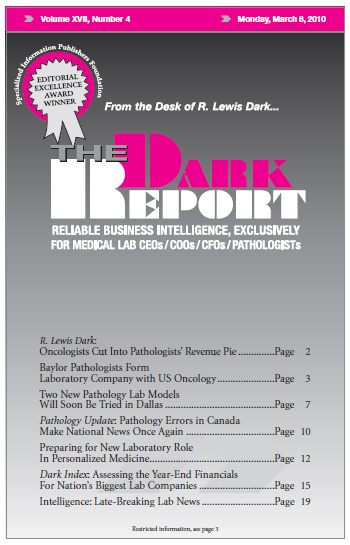YET ONE MORE TIME, pathology errors are making national headlines in Canada. News of errors by a surgeon and a pathologist in a Windsor, Ontario, hospital caught provincial health officials off balance. The simple story is that an experienced surgeon at 305-bed Hotel-Dieu Grace Hospital performed a mastectomy on a patient that did not have …
Pathology Errors in Canada Make National News Once Again Read More »
To access this post, you must purchase The Dark Report.


